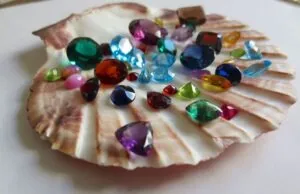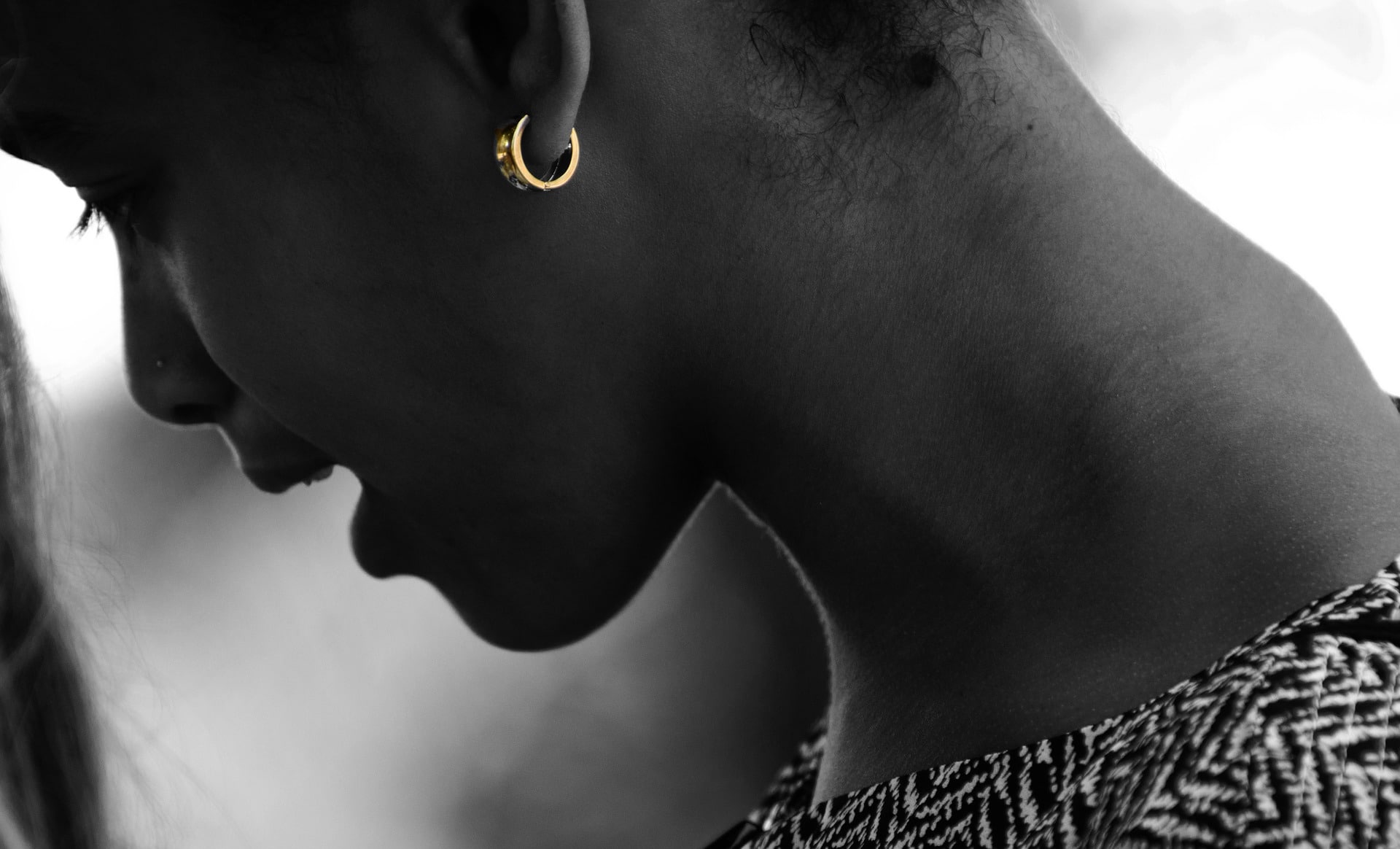
Table of Contents
As Jewelry Shopping Guide editors, we write about things that we love and we think you’ll like too. We often have affiliate partnerships, and may generate some revenue from these links at no cost to you.
Many people experience discomfort in their ear piercings when they wear earrings. This can be as minor as a slight itchiness or as major as pus and blood. While we normally tend to the blame earrings in general, they aren’t the culprit. The cause of this issue is the metal your earrings are made of, so the best way to avoid this is to choose your earrings carefully.
Not all metals are made equal, so in this guide, we’re going to outline your best options for earrings for sensitive ears.
What Causes Sensitive Ears?
Sensitive ears are typically caused by wearing earrings containing metals that can cause allergies. Nickel and cobalt are the typical culprits that cause issues for people with sensitivity to metal and unfortunately, these metals are in many of the alloys used to create jewelry.
While most cheap, costume earrings contain nickel, even precious metal alloys like gold and silver can contain nickel (more on this below) and can also cause reactions. Most people think they’re allergic to silver or gold when this happens, but in actuality they’re only allergic to the nickel.
If your ears are sensitive to metal allergies, you may experience swelling, redness, crustiness, oozing, itchiness, bleeding and pain in your ear piercings when you wear certain types of earrings. Being selective with the metals you choose for your earrings is the best way to avoid this issue.
What are Hypoallergenic Metals?
Hypoallergenic earrings are for people who experience skin reactions to particular types of metals.
To be sure that the earrings you’ve chosen will not irritate your ears, ensure that you choose the right metal. Below are listed the best metals for earrings for sensitive ears.
- High-Karat Gold Earrings– Gold is easily one of the best metals for sensitive ears. However, there is a caveat to this. The lower the amount of gold in the metal, the higher the risk of metal allergies. This is because gold alloys are mixed with metals such as nickel and zinc which are the cause of the allergies.
This is an issue for gold with under 14k gold purity. It’s best to stick with karatage above 14K like 18K and 22K gold as these contain more gold and very little nickel. You can opt for 100% pure gold with 24K but note that this will be less durable as it is quite soft and will also be expensive.
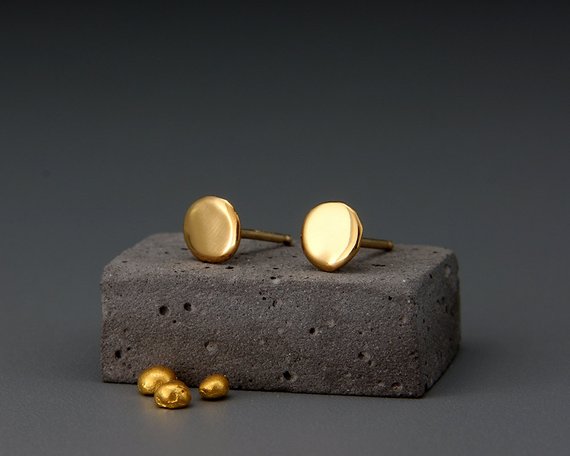
- Silver or Palladium Alloy White Gold – White gold is made of yellow gold alloyed with white metals like nickel, silver or palladium that help to give it its white color. The two common white gold alloys used in the jewelry industry are gold-palladium-silver or gold-nickel-copper-zinc. Opt for the palladium alloy as this won’t cause skin problems. Always ask the jeweler if you aren’t sure about their metal.
- Platinum Earrings – Platinum is rarer and more valuable than gold. It is also a more durable metal, making it perfect for everyday wear. Platinum doesn’t wear easily and resists tarnishing and corrosion. However, over time, platinum jewelry tends to develop a patina, which refers to a darkish surface appearance caused by miniscule scratches.
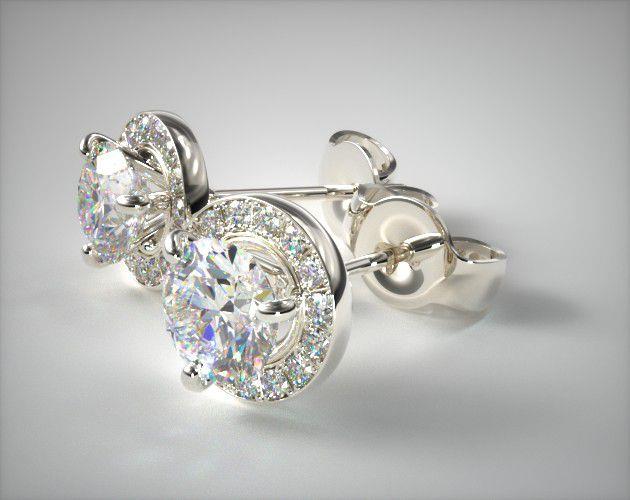
- Fine/Pure Silver Earrings – Silver is hypoallergenic and doesn’t cause allergic reactions. However, like 24K gold, fine silver (99.9% purity) is very soft and therefore not highly durable. It may also be difficult to find a lot of jewelry made of fine silver.
Sterling silver (92.5% purity) is also an excellent choice but it may contain traces of nickel, although this is often negligible. Some people can tend to get reactions to sterling silver so it has to be chosen with care. If you’re extremely sensitive to nickel, it’s best to ask the jeweler if the sterling silver alloy contains nickel. They should be able to tell you this information.
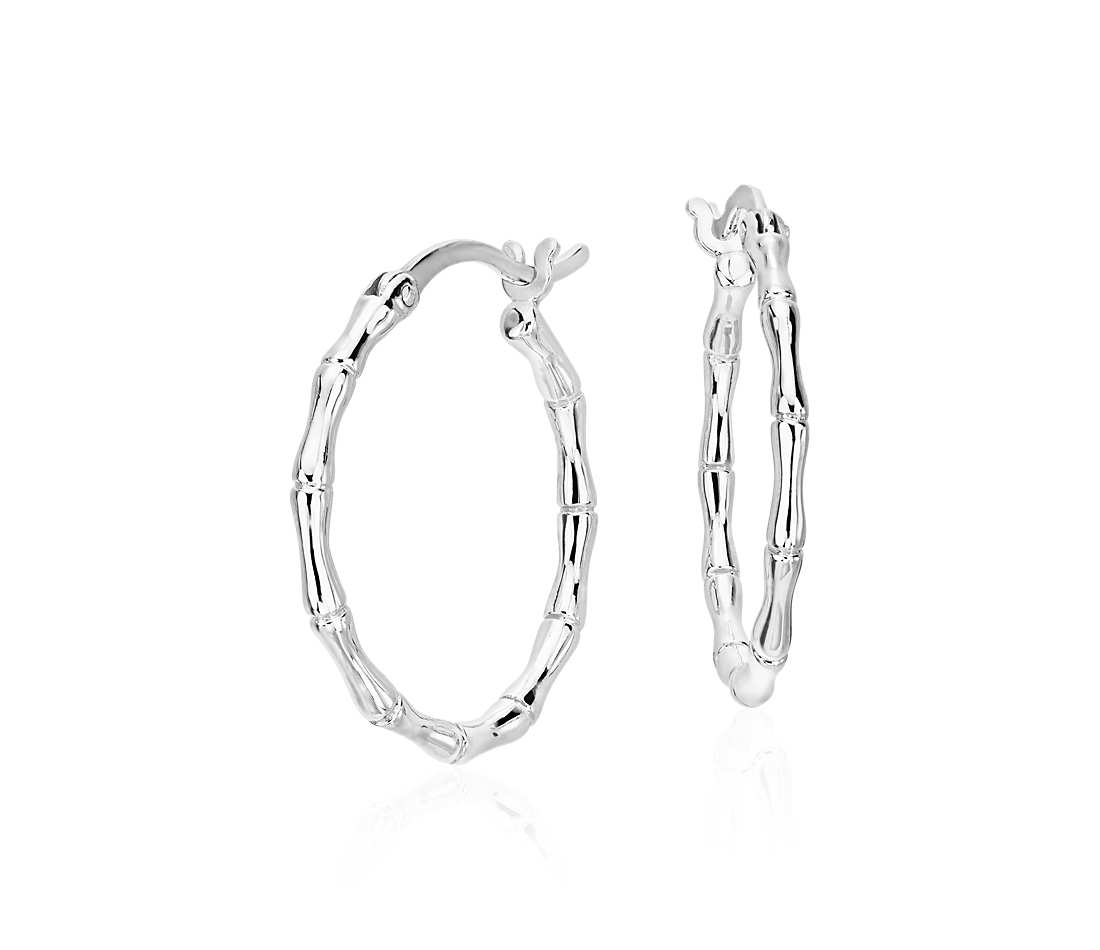
As an aside, some jewelers label their items as pure sterling silver. This is a marketing tactic and basically means that the silver is 92.5%.
To learn more about sterling silver vs. fine silver, check out our article here.
- Surgical Stainless Steel (SSS) Earrings – SSS is an excellent alternative to silver and platinum and is an affordable option. This metal is typically chosen for body implants and are ideal for piercings.
There are many stainless steel alloys, some of which contain nickel, but opt for grades 316L and 316LVM which are considered the best for sensitive ears.
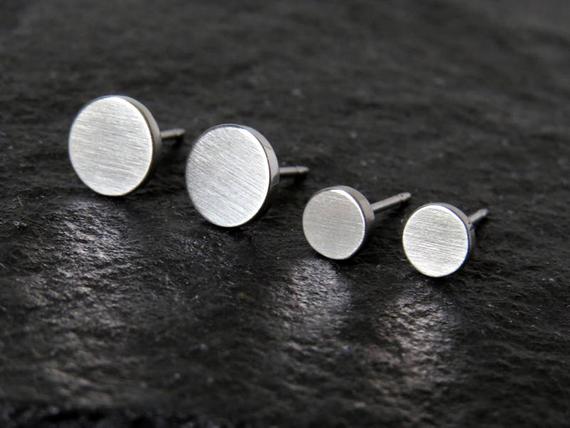
316L SSS earrings are ideal for newly pierced and sensitive ears. See these on Etsy.
- Titanium Earrings – Titanium is a durable, hypoallergenic metal that almost never causes allergies. A benefit of titanium is that even though it’s as strong as steel, it is lighter and therefore more comfortable to wear.
- Niobium Earrings – Niobium is an element, not a metal. But it can be manipulated to be used in jewelry and is about as durable and affordable as SSS and titanium. It can be harder to find niobium earrings as this metal is not mainstream and isn’t as well-known as the other metals mentioned in this article.
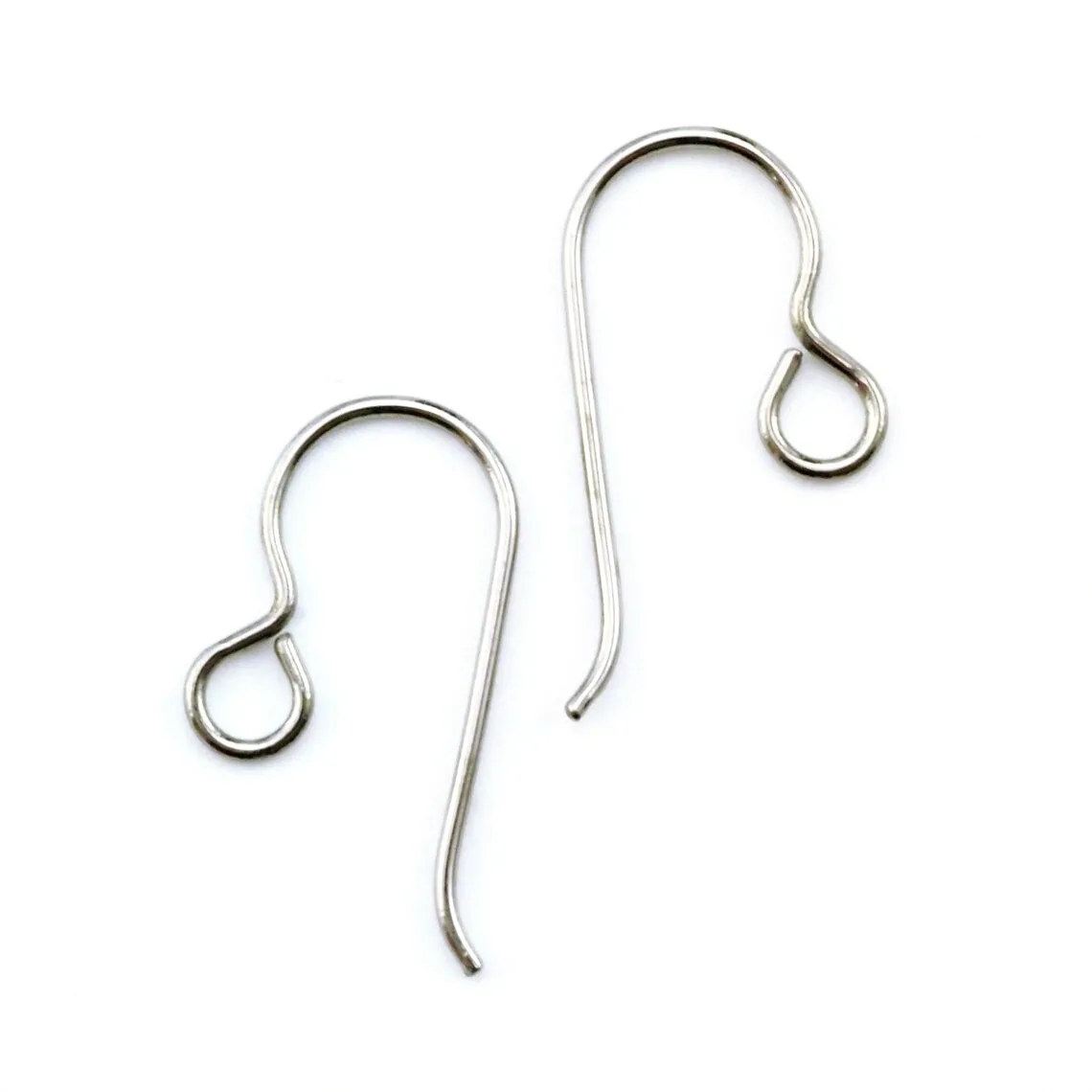
- Plastic Earrings – A very affordable option, plastic is ideal for those with metal allergies and can be the perfect solution for your sensitive ears. However, note that plastic earrings often look cheap and designs can be limited. If you do opt for plastic earrings, make sure that the post is made of plastic, as that’s the section that will be in contact with your ears.
- Wood Earrings – You probably didn’t think of wood as an alternative material for your earrings, but this is an excellent choice albeit not a common one. Wood doesn’t affect your ear piercings and aren’t known to cause allergies or reactions of any kind when worn. Again, ensure that the post is made of wood when choosing a pair.
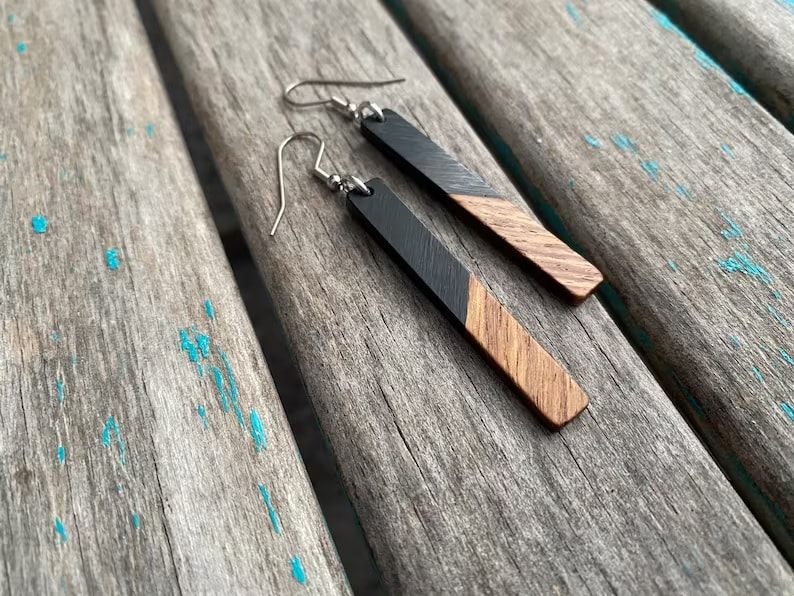
Metals to Avoid for Sensitive Ears
- Nickel –Nickel is usually the cause of most people’s allergic reactions and should be avoided if you have sensitive skin. Because nickel is commonly mixed into many alloys it can be difficult to tell when it is present. It’s a highly durable white metal that’s even used in sterling silver and gold alloys. If unsure, always ask the jeweler if the earrings contain any nickel.
- Plated Metals – Plated metals, such as rolled-gold and vermeil, often cause allergies because they’re normally made of base metals like nickel or zinc. When the plating wears off, your skin comes into contact with these metals and causes skin reactions.
What Are Hypoallergenic Earrings?
You’ll often find inexpensive fashion earrings labeled ‘hypoallergenic’. What this means is that the earrings are not highly likely to cause metal allergies, but it doesn’t guarantee that they won’t.
Unfortunately, in the jewelry industry, there is no standard for hypoallergenic earrings. Any jeweler can slap on a hypoallergenic label on their products. Usually, a hypoallergenic label simply means that the earrings may be coated to avoid nickel contact with skin but when the coating wears off, it’s likely that you’ll experience discomfort.
These kinds of earrings are fine to wear every now and then. But for regular wear, choose a better metal.
How to Wear Earrings Without Irritation
If you aren’t ready to get rid off your favorite costume earrings, you don’t have to. Here are some tips to make those allergy-causing earrings wearable.
- Clear nail polish works like a charm on earrings. All you have to do is to coat the earring posts with two to three layers of clear nail polish. This doesn’t affect how your earrings look or feel and they provide a buffer between your ears and the metal. You can also opt for a professional jewelry sealant like this one that prevents allergies. Don’t forget to reapply the coat every week or so, as the nail polish or sealant will wear off and you’ll be back to square one.
- Vaseline applied to the metal is another trick that’s easy to do and works perfectly for most people. Simply rub some petroleum jelly on the parts of the metal that comes into contact with your skin. Like the nail polish, this provides a protective barrier. Unlike the nail polish trick, Vaseline needs to be reapplied every few hours which can become irritating.







